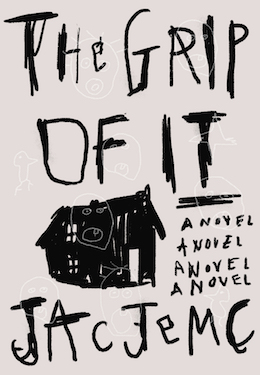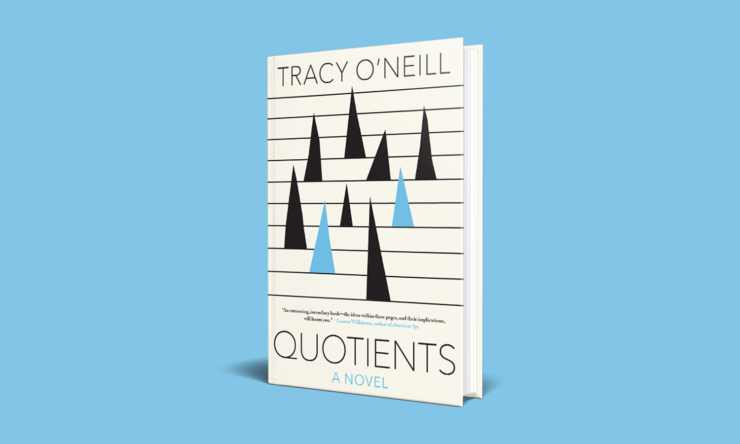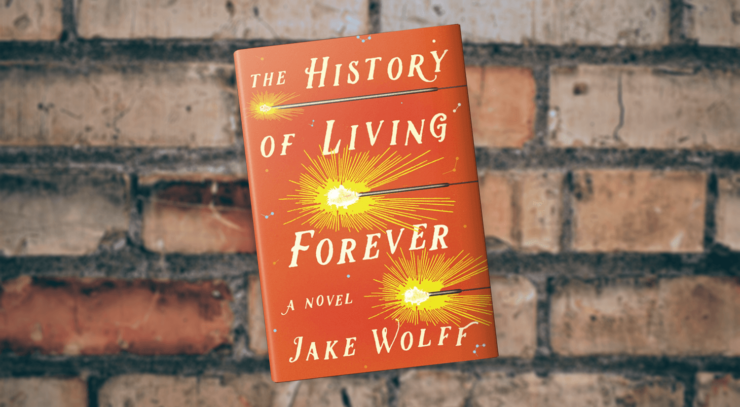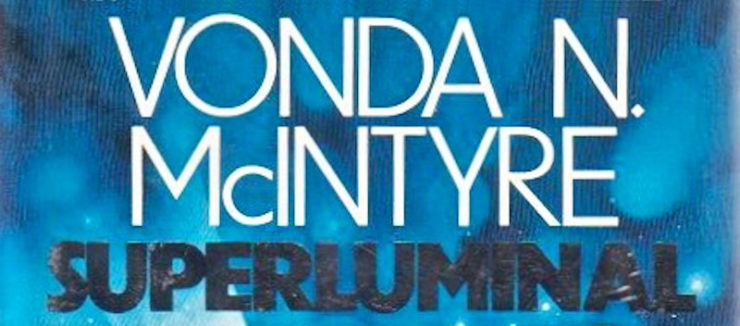Obviously the best haunted house novels are not about ghosts. The best ones are about, for instance, the constricted role of women in US society in the 1950s (The Haunting of Hill House), the constricted role of women in US society in the 1890s (The Turn of the Screw), the horror of slavery (Beloved), the trap of capitalism (The Family Plot). The cool thing about Jac Jemc’s The Grip of It is that she knows that we know that, and introduces us to what the book is really about almost immediately. Then she scares the hell out of us anyway.
So what is it about? A young couple, Julie and James, decide to leave city life for a suburban home. James is in therapy for a gambling addiction that drained his personal bank account, and was just about to nibble at the couple’s joint account; Julie suggests a move both to head this inevitability off and to give them a fresh start.
This… does not go as planned.
Julie’s the exacting, controlling, Type A one. James is more lackadaisical, despite being a professional codewriter.
As I said, you learn all of this by page 5, but it quickly stops mattering that what the book is “really” about is their relationship, because it’s so immediately frightening that your conscious mind subsumes the drama and focuses on the sounds in the house, the weird laughter in the forest, the jagged writing on the walls.
The fun in the book is the way Jemc explodes all the haunted house clichés. Yes, it’s a creepy Victorian with a twin creepy Victorian next door. Yes the block is quiet… too quiet. There are woods and a lake and a cave. The neighbor, constantly and unabashedly, stares at them. Yes, the neighbor has a dark secret. Everyone in town has a different horrific story about what went on in their house, and, after a few moments of hemming and hawing like peasants in a Hammer film, all of the residents are only too happy to rain secrets upon our protagonists. The Realtor…well, I don’t want to give too much away, because that’s my favorite element, but I’m choosing to believe that Realtor is always capitalized as a nod to Jeff VanderMeer’s Southern Reach Trilogy.
I love nods to Jeff VanderMeer’s Southern Reach Trilogy.
And, like all great haunting stories, the great thing is how quickly reality is overturned and shown to be the flimsy construct it is. Is the house exerting a horrible control over them? Are spirits following them even to as wholesome a place as the ice cream shop? Or is it their own minds that are closing each other out, and creating paranoid scenarios? What does it matter if the end result is that each day their reality is skewed and tipped, and the line between dreaming and waking are blurred? Once the couple is in the house, their reality is fundamentally different, and they can’t trust their eyes, minds, or memories. Which is ultimately the scariest thing, because you can never know if you’ve escaped. You can drive into the city for a day, but the horror might follow you there. You can go to the beach, but if you wake up back in the house anyway…have you gone to the beach, and returned home in a fugue state? Or was the trip to the beach a dream? What else might you do in your dreams?
The danger in horror is over-explaining the haunting. Oh, you bought a house built on a Native American burial mound? Sorry, family from Poltergeist, that’s why you’re is being attacked. Oh, you’re spending a weekend in a mansion owned by a psychopathic occultist who used to host horrific blood orgies? Sorry, characters from Richard Matheson’s Hell House, you’re, well, you’re just screwed.
Jemc largely avoids this. She does offer some supernatural explanations, as well as a few psychological and even purely medical ones. There are a lot of reasons the house could be haunted, but all of them could be lies. By layering in a lot of different histories and making them all plausible, she creates a diffuse sense that any house in the town could be haunted. All of us have tragedies in our lives, right? Who’s to say that any tragedy can’t fester and rot and travel with us even into a gleaming new subdivision?
She also succeeds in making us care enough about this couple that we don’t want them to become ghost chow. One of the pitfalls of a haunted house novel, or any horror really, is that the reader goes in knowing that terrible things are going to befall the characters. The author has to balance between torturing her characters enough to satisfy the reader, while also providing enough breathing room and, ideally, lovable-ness that the reader worries about the characters when the torture beings in earnest. Hill House doesn’t work if we don’t care about Eleanor. Beloved doesn’t work unless we want Sethe to heal enough to make a new life for herself, white supremacy be damned. Jemc gives us this empathy by leaning into Julie and James’ status as millennials. She lets us into their desperation, their dwindling resources, and the panic that comes with each new decision. They’re not sure if they can even afford to make the move in the first place, and even though they both realize, quickly, that the house has them by the throats, they also can’t afford to leave. Even a weekend away to try to get some perspective is out of their budget. When they take sick days from work to try to deal with bruises that appear out of nowhere (or the horrible smell of mold in the basement, the thing in the backyard that might be a grave, etc.) they risk their jobs. The fact that James’ addiction may have already ruined their life together hangs over both of them, as does the question of whether Julie has truly forgiven him. And should she? Or should they call it quits? It would certainly be easier to divorce and move on, but neither of them wants to give up so easily. And it’s that tenacity that makes the reader root for them.
The Grip of It is available now from Farrar, Straus and Giroux.
Leah Schnelbach lived in a haunted house once. You can come say “Boo!” on Twitter and elsewebs.














